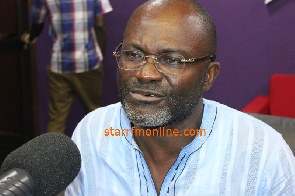Private sector growth dependent on government – Dr. Osei-Assibey
Dr. Eric Osei-Assibey, a Senior Research Fellow of the Institute of Economic Affairs (IEA), has said that though the private sector is the engine of growth, that said growth is largely dependent on some assistance from government.
Speaking at a discussion in Accra on the theme ‘A Thriving Private Sector: The Key to Sustainable Socio-Economic Growth’, Dr. Osei-Assibey explained that with high lending rates the private sector is unable to make enough returns to pay off loans – which is one of the key factors crippling their growth.“Access to credit is an issue for many private companies because the lending rate remains high at 29%; when it is like that, how can the private sector actually borrow and be able to make enough profit to pay back such loans? If we want the private sector to thrive, then there should be a way to bring the lending rates down,” he said.
He added that another factor hindering the private sector is inadequate competitive infrastructure due to some challenges in the transportation sector, and lack of an enabling environment for the private sector.
“We acknowledge the fact that government is trying to pay attention to the road network, rail sector; however, it is taking a bit too long. We want the private sector to respond to many of government’s policies and interventions, and then there should be an enabling environment to reduce cost of doing business, to reduce production cost, transportation cost and to increase profitability of business; that is the way to attract the private actors into that sector.
“If we have a railway running from Accra to Paga, businesses can spring up in Paga because bringing the product to the Exim front from Paga to the ports will not be costly for such businesses to be located there,” he said.
Dr. Osei-Assibey further added that lack of proper managerial structures is also another factor and that for businesses to do well there must be proper structures as the nation has good human capital to help build strong industries. In a presentation at the discussion another senior fellow of IEA, Dr. William Brafu-Insaidoo added that the way forward for the private sector in sustainable socio-economic growth is hinged on educating the business community, provision of technical support, as well as application of good entrepreneurial skills.
“When you look at the tertiary educational curriculum, there aren’t any courses structured in a way that encourages entrepreneurship, and such should not be the case. There should be a marrying of theory and practice that spurs entrepreneurship,” he said.
Source: thebftonline.com





